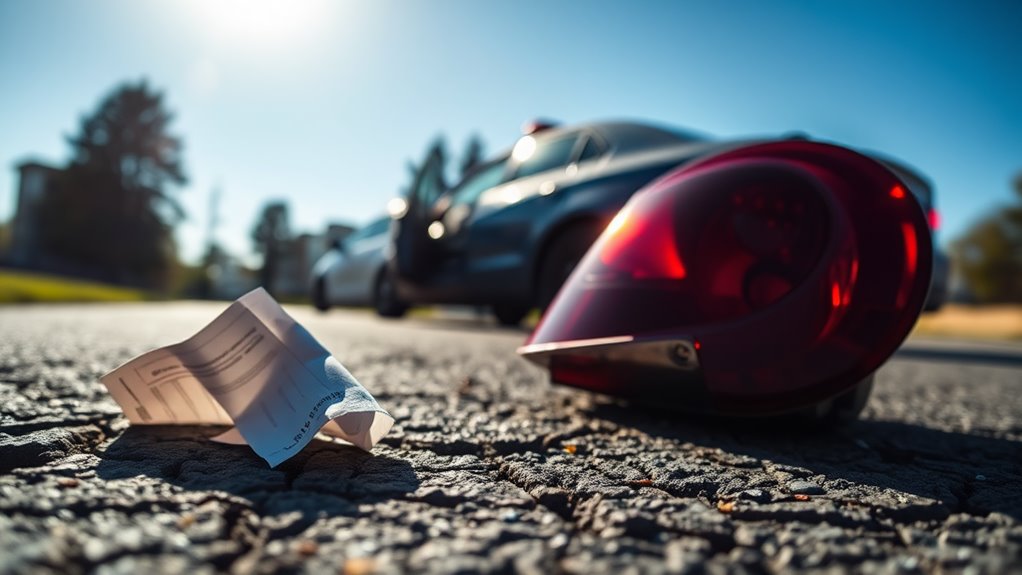While driving can offer freedom and convenience, it also comes with responsibilities that, when neglected, can lead to the need for SR22 insurance. Serious violations like DUIs, excessive points, or uninsured accidents can trigger this requirement. Furthermore, legal issues such as probation violations or failure to show proof of insurance complicate matters further. Understanding these triggers is essential to maneuvering the complexities of regaining your driving privileges effectively. What specific situations might you find yourself facing?
When faced with the need for SR22 insurance, it's vital to understand the various causes that can trigger this requirement. SR22 insurance serves as proof of financial responsibility, and specific driving behaviors can lead to its necessity. Common reasons include serious traffic violations like DUI or DWI convictions, which greatly impact your driving record. If you've been convicted of such offenses, you'll likely need to file an SR22 to reinstate your driving privileges, demonstrating that you're financially responsible. Additionally, the state mandates SR22 filings to ensure that drivers comply with financial responsibility laws.
Understanding the triggers for SR22 insurance is essential for reinstating driving privileges after serious traffic violations.
Accumulating excessive points on your driving record can also result in the requirement for SR22 insurance. Each state has a point system where various traffic violations contribute to your total score. Once you hit a certain threshold, the state may mandate that you file an SR22.
Involvement in uninsured accidents is another triggering factor. If you're in an accident and can't prove you'd insurance at the time, you can be required to obtain SR22 insurance to show that you can cover future liabilities. Multiple at-fault accidents can similarly lead to an SR22 requirement. Insurance companies view frequent accidents as a sign of reckless driving behavior, which increases your risk profile.
Likewise, driving without insurance is a clear violation that can lead to penalties, including the requirement for SR22 to guarantee you maintain adequate coverage moving forward. Serious traffic offenses, such as reckless driving or hit-and-run incidents, can also trigger the need for SR22. Leaving the scene of an accident is particularly serious and might result in legal consequences that demand proof of financial responsibility.
If you've violated probationary license terms or failed to provide proof of insurance when required, these actions could further complicate your driving status and lead to the need for an SR22. Your license status plays a significant role in determining whether you'll need SR22 insurance. If your license has been suspended due to alcohol-related offenses or revoked following serious driving violations, obtaining an SR22 may be necessary for reinstatement.
Some individuals apply for a hardship license, which often comes with the stipulation of maintaining SR22 coverage. Financial and legal implications of SR22 can't be overstated. You'll likely face higher insurance premiums when filing for SR22 compared to standard policies, as insurers deem you a higher risk. Each state has specific minimum liability coverage requirements that you must meet, which can also influence your premiums.
Additionally, violating court orders can lead to SR22 mandates, further emphasizing its role in promoting public safety. The process for obtaining SR22 involves purchasing an auto insurance policy that meets state minimums, followed by filing the SR22 form with the state DMV. It's vital to maintain continuous insurance coverage during this period to avoid lapses, which can have severe consequences.
Typically, SR22 requirements last from three to five years, contingent upon fulfilling all obligations set by the state. Monitoring by insurance companies helps guarantee compliance, as any lapse during this time could extend your requirement or lead to further penalties.
Conclusion
To summarize, the need for SR22 insurance often stems from serious traffic violations and legal issues that jeopardize your driving privileges. Perhaps you've faced a DUI, accumulated too many points, or had an uninsured accident. Whatever the reason, the stakes are high. Without demonstrating financial responsibility through SR22, you risk losing your ability to drive legally. The question is: are you prepared to navigate this complex situation and reclaim your freedom on the road?

